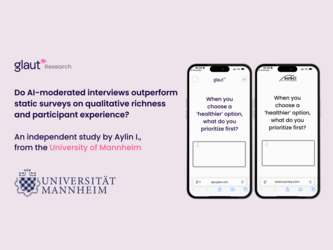The risks and rewards of recruitment
The year is 2006, the market is buoyant, jobs are aplenty. Candidates are mobile and although client teams are generally full to bursting, they still have a healthy recruitment policy.
Fast forward a few years and the market is very different. In the autumn of 2008, as the BBC’s Robert Peston began mentioning the word ‘recession’ and showing big downward arrows every night, we noticed that clients became much more cautious and candidates became nervous – lasting until mid-2009 when people started to relax a little and confidence returned to the market.
Redundancies in pharma market research were not too severe – implemented with an awareness of the bottom line, but not necessarily because companies were in trouble. In many cases restructuring plans resulted in only a few staff being made redundant while others changed jobs internally.
“More planning now seems to take place before each vacancy is finalised. We hear more often about vacancies being ‘signed off’ or ‘approved’, indicating that companies are more cautious”
Treading carefully
The recession has, however, left its mark on research recruitment. More planning now seems to take place before each vacancy is finalised. We hear more often about vacancies being ‘signed off’ or ‘approved’, indicating that companies are more cautious about each new addition. Clearly there are more processes to go through now to approve a job, with head offices or boards getting more involved. The new economic climate seems to have made companies more aware of their staffing costs, and more anxious to realise the value in who they hire quickly.
Research clients are definitely being more thorough in their selection and candidates are also thinking more seriously about potential new companies, asking more probing questions at an earlier stage in the process to check out how secure they are (sometimes even before allowing their CV to be put forward). They want to know the turnover of a company, what shape the business plan is in and whether there have been redundancies – questions that just didn’t crop up before.
Considering the influx of talented people on to the job market from all sectors, the types of people entering or moving jobs in pharma research seem to be even more niche than before. Agencies, particularly, want people who have lived and breathed pharma, and even candidates who have the necessary sector experience are required to be more flexible. Before 2009 most clients would make allowances for a really good candidate if, for example, they only had experience in one methodology or weren’t willing to get involved with business development. But over the last six months we’ve seen several of our clients ask for ‘doer-sellers’ (researchers who are happy to take on some sales work as well) and candidates who can work across more than one methodology.
Balances of power
When it comes to bending deals to a candidate’s requirements, agencies and business intelligence departments in pharma companies have less room to manoeuvre than they did five years ago, and more confidence to say no. Hirers are still offering good packages to candidates; it’s just that the jump in salary and benefits from one job or company to the next are not quite as large as they once were. You don’t hear the phrase ‘We’ll pay whatever it takes’ as often as you used to. Clients have set budgets and if their benefits package doesn’t match a candidate’s existing one, they generally won’t consider increasing it.
Pre-recession, when there was strong growth in clients’ companies, they were less picky and often kept an open brief for good candidates. Companies would recruit ahead of the curve, anticipating future resource requirements, whereas now they only hire when they have the work signed off and the confidence to take someone on to get it done.
So what is the future of recruitment in pharma research? Agencies that started pharma divisions using internal staff without experience in the sector are now realising the need for people with a healthcare pedigree.
Another interesting outcome from the last few years (most notably 2010 ) is the emergence of lots of small start-up agencies, many of which are born out of recent redundancies. These firms can be seen as a double-edged sword by candidates: a great opportunity for growth and development but also a high-risk move. For that reason larger agencies and pharma companies can sometimes have the edge in attracting candidates because they are seen as a safer bet.
Now that recruitment strategies have been put under the spotlight, it will be hard to open them up again to the same extent. Established research companies are likely to continue to be cautious, and it will take time to get back to the recruitment policies and confidence of the early 2000s.

We hope you enjoyed this article.
Research Live is published by MRS.
The Market Research Society (MRS) exists to promote and protect the research sector, showcasing how research delivers impact for businesses and government.
Members of MRS enjoy many benefits including tailoured policy guidance, discounts on training and conferences, and access to member-only content.
For example, there's an archive of winning case studies from over a decade of MRS Awards.
Find out more about the benefits of joining MRS here.












1 Comment
Simon Robertson
15 years ago
This is a well researched and well written piece but it seems only to comment on how market research organisations have changed and makes no comment on how the recruitment industry must change to accomodate a more discerning clientele. Thankfully, gone are the days of "roughly matching" a candidate to the job, or sending so many CV's that you almost couldn't fail to get lucky. Today's recruiter needs to work with their clients, understand their issues and provide help and yes guidence in how to attract the right person for the right job.
Like Reply Report